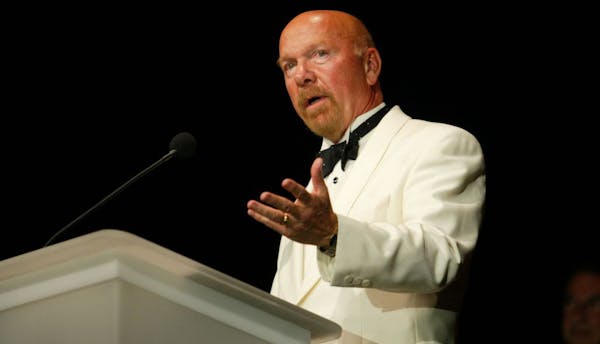The story of Best Buy Co. founder Richard Schulze trying to regain control of the company has ended, and for management it's a good ending.
It means the end of negotiations and due diligence meetings and conference calls with investment bankers. The way is now cleared to turn around the business.
For Schulze, who as it turned out did not come that close to presenting a good option, it means he can either join the board of directors and help or he can sit it out. That's up to him. Either way, Best Buy is moving forward.
Schulze let a deadline pass on Thursday without making a proposal to acquire the company in a going-private transaction, and it's now clear that it has been a while since that was even his primary objective. His energy over the recent past has reportedly gone into bringing up to three prominent private equity firms into Best Buy as financial partners.
When Best Buy CEO Hubert Joly called the still officially unnamed firms "impressive" on Friday's conference call with Best Buy investors, he is not exaggerating. The firms are reportedly Cerberus Capital Management, TPG Capital and Leonard Green & Partners. These are top-shelf firms, with deep and capable leadership teams and lots of capital. The proposals were said to be for cash investments of between $400 million and $700 million, and a board seat for each firm that invested.
The case Schulze made for financial partners in an amended filing Friday with the Securities and Exchange Commission seemed to be more about getting their representatives into Best Buy's boardroom than their capital, as "Mr. Schulze believed that the private equity firms would add significant expertise, talent and experience to the company's board of directors, which would assist the company in returning to its position of market leadership."
The Best Buy directors rejected those proposals from the private equity firms. They did so because it is difficult to imagine a single good reason for accepting them.
Remember, this was all Schulze's idea. Best Buy may have many challenges remaining before it, but raising capital isn't one of them.
The company just said it expects adjusted free cash flow of $965 million for the year, far more than its guidance from early January. The better-than-expected cash flow results came in the usual ways, such as selling more inventory, and in ways not so usual, such as digging deep into the operations to find slow-moving inventory that was eligible to be shipped back to vendors.
However the cash got into the checking account, it's more than enough at the end of the year to make the new money from Schulze's new private equity friends pretty easy to turn down, even if the terms had been attractive.
As to how unattractive the proposals were, Joly's simple explanation for shareholders on Friday morning was that the cost of the proposed new money was "excessive." Even without seeing the term sheets, you can make a reasonable guess what made them excessively costly.
The private equity firms may have proposed to take preferential securities that put them before the common shareholders, like a form of newly issued preferred stock. That's unattractive. They likely proposed to buy at a discount to the market price of the common stock. That's also unattractive. And it's been confirmed by Schulze in his filing that they were proposing representation on the board. That's also, no matter what Schulze believes, unattractive.
In conversations with Minneapolis private equity managers in recent weeks, not one said they knew personally any senior manager with any of the three firms that were reported to be working with Schulze. But they sure knew about them. They knew they would be challenging when working out terms of an investment and challenging once in a boardroom. That's particularly the case here, because in a turnaround situation like Best Buy's it's safe to expect some rocky quarters ahead even if progress is being made longer term.
That made Schulze's private equity plan just expensive money Best Buy really doesn't need that comes with the promise of "help" that the company did not invite to the table.
The company has agreed to accept help from Schulze himself, and joining the board remains the only choice Schulze has left. As of Friday, according to his filing, he "has not made any determination as to whether or not he will exercise his right to appoint his own two nominees" to Best Buy's board.
What's most interesting here is his hesitation, although his midday Friday filing came just hours after wrapping up a project that's likely been all-consuming since the start of last summer and did not turn out as he hoped.
One conclusion is that he stays off the board to work on other options for the roughly 19.6 percent of the stock he owns or to instigate another transaction at a later date, although he acknowledged Friday that the company deserves a chance to implement its own plan.
He may also be thinking through whether he knows how to contribute as one of the directors, but not the leader. He knows he can be skipper but he may not know how to help on the crew, or think it best for the company that he tries.
After all, as his Friday filing pointed out, "no one is more interested in the success of the company than Mr. Schulze."
lee.schafer@startribune.com 612-673-4302

Schafer: What do you really need to retire?

Schafer: How doing business can be a bit more like Christmas morning

Schafer: There won't soon be another opportunity to rethink the I-94 corridor

Schafer: The fruits of Honeywell's long-game dedication to quantum computer now being seen


